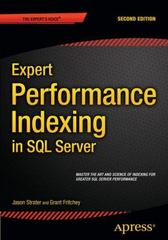Answered step by step
Verified Expert Solution
Question
1 Approved Answer
Consider the following modified argument for ethical relativism: 1 . The ethical standards believed to be correct by people often differ. 2 . If the
Consider the following modified argument for ethical relativism:
The ethical standards believed to be correct by people often differ.
If the ethical standards that people believe to be correct often differ, then the ethical standards that are correct often differ for these different people.
L The ethical standards that are correct are often different for different people.
Therefore, ethical relativism is true.
Which of the following assessments is correct?
The argument is sound. It is logically valid; L can be derived from premises and by application of modus ponens, and the conclusion follows by modus ponens again from L However, there is powerful evidence that the first premise is true, and differing beliefs can never be assessed against one another; whenever people disagree, there is automatically no right answer.
The argument is sound. It is logically valid; L can be derived from premises and by application of modus tollens, and this conclusion is equivalent to the core contention of ethical relativism. However, there is powerful evidence that the first premise is true, and differing beliefs can never be assessed against one another; whenever people disagree, there is automatically no right answer.
The argument is not sound. It is logically valid; L can be derived from premises and by application of modus ponens, and this conclusion is equivalent to the core contention of ethical relativism. However, premise is an instance of generally false implication statement; there are countless cases where beliefs differ and truth does not. Moreover, there are robust frameworks for assessing ethical standards against one another, as well as balancing and specification methods.
The argument is sound. It is logically valid; L can be derived from premises and by application of modus ponens, and this conclusion is equivalent to the core contention of ethical relativism. However, there is powerful evidence that the first premise is true, and differing beliefs about standards can never be assessed against one another; whenever people disagree about standards, there is automatically no right answer.
The argument is not valid. L can be derived from premises and by application of modus ponens, and this conclusion is equivalent to the core contention of ethical relativism. However, premise is an instance of generally false implication statement; there are countless cases where beliefs differ and truth does not. Moreover, there are robust frameworks for assessing ethical standards against one another, as well as balancing and specification methods.
The argument is not sound. It is logically valid; L can be derived from premises and by application of modus tollens, and this conclusion is equivalent to the core contention of ethical relativism. However, premise is an instance of generally false implication statement; there are countless cases where beliefs differ and truth does not. Moreover, there are robust frameworks for assessing ethical standards against one another, as well as balancing and specification methods.
Which of the following assessments is correct?
Step by Step Solution
There are 3 Steps involved in it
Step: 1

Get Instant Access to Expert-Tailored Solutions
See step-by-step solutions with expert insights and AI powered tools for academic success
Step: 2

Step: 3

Ace Your Homework with AI
Get the answers you need in no time with our AI-driven, step-by-step assistance
Get Started


